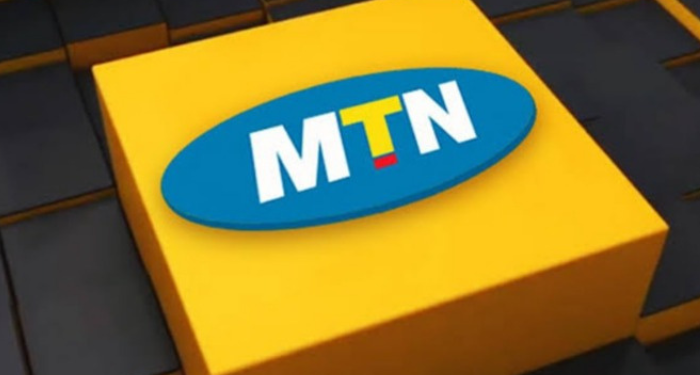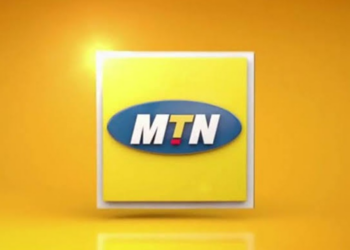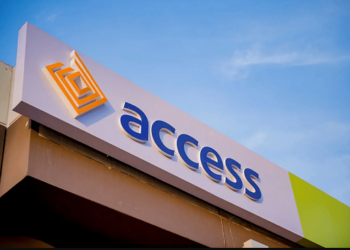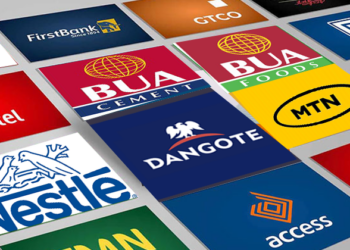MTN Nigeria’s recent financial performance highlights significant challenges that leave investors questioning whether to buy, sell, or hold the company’s stock.
While the telecom giant has demonstrated resilience in growing its top-line revenue, its profitability has been severely impacted by escalating finance costs and foreign exchange losses, exacerbated by Nigeria’s macroeconomic environment.
Operational pressures despite revenue growth
MTN’s 33.6% growth in service revenue in the first nine months of 2024, fueled by data, voice, fintech, and digital services, stands out.
- Yet, the company’s EBITDA fell by 5.3% to N860.153 billion, with the EBITDA margin contracting to 36.3%, driven by naira depreciation, higher energy costs, and inflationary pressures.
- Also, the company recorded a loss before tax of N713.630 billion in the first nine months of 2024, a sharp decline from a loss of N9.848 billion in the same period of 2023.
- This came after reporting an N177.886 billion loss before tax in 2023, a stark reversal from a pre-tax profit of N518.823 billion in 2022.
Finance costs surged by 85% year-on-year to N303.374 billion, and foreign exchange losses nearly doubled, reaching N904.931 billion, overshadowing the operating profit of N475.304 billion.
These dynamics further eroded shareholder equity, increasing its negative position to N573.559 billion, from the N40.844 billion negative at the end of 2023.
Management’s perspective
MTN Nigeria’s CEO, Karl Toriola, attributed the company’s challenges to the naira’s depreciation. Commenting on the nine-month 2024 performance, Toriola highlighted:
“The further depreciation of the naira, arising from the revaluation of foreign currency-denominated obligations, resulted in a loss after tax of N514.9 billion (2023: N15.0 billion loss, restated).
This led to negative retained earnings of N723.0 billion (December 2023: negative N208.0 billion) and shareholders’ equity of N573.6 billion (December 2023: negative N40.8 billion)”
Toriola further stressed the company’s efforts to reduce its exposure to foreign currency obligations, noting that:
“As of September 2024, we had reduced our outstanding trade line obligations to approximately US$57 million, a significant decrease from US$416.6 million as of December 2023. While this reduction led to realized forex losses of approximately N365 billion, it helped minimize the effect of future naira depreciation and the associated increase in finance costs.”
Management also, highlighted progress in cost-cutting initiatives, such as savings of N54 billion from renegotiating contracts and reducing foreign currency-denominated obligations to $57 million as of September 2024, down from $416.6 million at the end of 2023.
Despite these efforts, MTN Nigeria’s liquidity challenges remain significant. The company’s current ratio of 0.29, indicating it has only 29 kobo in current assets for every N1 in current liabilities, reflects this liquidity challenge.
Similarly, net exchange losses on trade and other payables surged to N255.515 billion in the first nine months of 2024, more than doubling from N100.051 billion in the same period of 2023.
To address its liquidity challenges, MTN Nigeria launched a N250 billion Commercial Paper (CP) program.
The first issuance under this program took place on November 15, 2024, with Series 11 and 12 targeting N50 billion.
However, due to strong investor demand, the offering was oversubscribed, ultimately raising N75.184 billion.
Despite the success of the issuance, the CPs came at a steep cost, with yields of 27.5% for 181-day and 29% for 265-day tenors significantly higher than the 13-16% yields seen in 2023.
This reflects the rising cost of borrowing amid tightening financial conditions.
Just ten days later, on November 25, MTN Nigeria announced another CP issuance, targeting N50 billion, further highlighting its pressing need for liquidity.
While CPs offer quick access to cash to stabilize operations, the high borrowing costs, compared to prior periods, may compound profitability, margins and ability to cover its interest expenses.
In the first nine months of 2024, interest expenses surged by 58% year-over-year to N130.842 billion, pushing the interest coverage ratio down significantly from 7.33 in 2023 to 3.63 in 2024.
This decline occurred despite a reduction in total debt from N1.177 trillion in 2023 to N767 billion by September 2024, highlighting the escalating cost of financing.
That said, what is more important for investors, is the company’s ability to deliver returns and sustain prospects.
Currently, MTN Nigeria is unprofitable, raising doubts about its capacity to pay dividends this year, mirroring the situation last year.
Buy, Sell, or Hold?
MTN Nigeria’s stock presents a nuanced investment case.
Encouraging Aspects:
- The company continues to demonstrate strong revenue growth, supported by strategic operational measures.
- MTN Nigeria has received favorable ratings from major agencies, reflecting confidence in its operational resilience. According to MTNN’s press release of August 19, 2024.
GCR affirmed a national scale long-term issuer rating of AAA and a short-term issuer rating of A1+, emphasizing its competitive edge and robust funding access.
Augusto & Co. also affirmed an A1+ issuer rating, recognizing its strong earnings generation capacity and market position.
However, both agencies assigned a negative outlook due to MTN’s exposure to foreign currency risk and its limited ability to transfer rising business costs to customers.
- From a valuation perspective, analysts maintain a consensus “Buy” rating on the stock, with a 12-month average target price of N214.95, representing a potential +26.37% upside. MTN remains the fourth most valuable company on the Nigerian Exchange (NGX), boasting a market capitalization of N3.462 trillion.
Red Flags:
- The share price paints a different picture. MTN’s share price has plummeted 36% year-to-date in 2024, a stark contrast to the 23% YTD gain recorded in 2023.
- Closing at N170.10 on December 6, 2024, slightly higher than its 52-week low of N169 and significantly below its 52-week high of N295, suggests investor caution.
- Furthermore, with a beta of 0.638, the stock is less volatile but may also underperform during market rallies.
Key Risks:
- Challenges such as negative equity, rising borrowing costs, and foreign exchange vulnerabilities pose significant risks to profitability and liquidity.
- While its strong operational foundation and favorable ratings are encouraging, the negative outlook from rating agencies highlights ongoing financial strain.
Overall, the positive ratings and operational strength make the stock attractive for long-term, high-risk investors, but the negative outlooks and financial challenges warrant caution.
A Hold is prudent for most investors, while those with higher risk tolerance might consider a Buy for potential future gains.





















